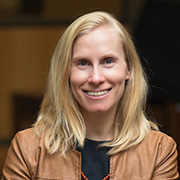Media leaders have traditionally learned on the job through trial and error. Early mistakes sometimes derail careers. Others never fully develop. The most successful leaders usually benefit from informal mentorships.
That’s why the University of Mississippi School of Journalism and New Media is introducing a new Media Leadership Certification designed to give mid-career leaders a solid foundation for developing a successful leadership style.
Hank Price, director of leadership and development at the School of Journalism, has had a 30-year career as a television general manager, leading television stations for Hearst, CBS and Gannett. He will lead the Media Leadership Certification program.
“Leadership theory, practical application and a framework of introspection will provide the opportunity for individualized development of leadership skills,” Price said. “Skillsets will be enriched by a number of classes already taught in the IMC graduate program.”
Price is a frequent speaker to television industry groups about the future of media. He spent 15 years as senior director of Northwestern University’s Media Management Center, teaching in both the domestic and international executive education programs. He is the author of Leading Local Television (BPP, 2018) and co-author of Managing Today’s News Media: Audience First (Sage, 2015) a management textbook.
 At the end of 2018, Price retired from Hearst and opened a boutique media-consulting firm. In addition to his consulting work and writing, he is recognized for his presentations on leadership and brand strategy, subjects he believes are foundational to the success of any modern business.
At the end of 2018, Price retired from Hearst and opened a boutique media-consulting firm. In addition to his consulting work and writing, he is recognized for his presentations on leadership and brand strategy, subjects he believes are foundational to the success of any modern business.
Price said the Media Leadership Certification is designed for mid-career professionals who aim to someday run media companies. Candidates will ideally have some level of management experience.
“This will be a unique program nationally, designed to fill an educational void in media leadership,” he said. “Our aim is for this program to become an essential tool and credential for future media leaders across the country.”
Annette S. Kluck, Ph.D., dean of the UM Graduate School and a professor of leadership and counselor education, said there are many reasons individuals obtain graduate certificates. They allow individuals to continue their education learning a defined set of skills or developing a targeted area of expertise.
“In many cases, certificates are designed for individuals who are already working and have great real-world experience that they bring to the courses,” she said. “This enables those earning the certificates to learn how the material and ideas directly apply to their work and how other professional environments implement ideas and practices that they learn about in the courses.”
Kluck said certificates are carefully designed to provide maximal impact. Courses included in certificate programs are selected to be cohesive and complementary to help students quickly gain expertise in a particular area.
“Certificates are also time-limited so students can often complete them in one year,” she said. “This allows students to quickly build their resume. And, having a certificate on one’s resume (or CV) shows current and prospective employers that an individual has developed advanced expertise in a particular area and engages in continuous professional development.”

Annette S. Kluck
Kluck said both the added expertise from the certificate and the demonstration that one is invested in learning and professional growth are appealing to hiring supervisors. The certificate shows that one can be successful in growing themselves as a professional.
“Certificates have become quite popular in the last few years,” she said. “Part of the reason is the ability to complete the certificate in about a year. The shorter commitment of a graduate certificate often fits well with the realities of working professionals who may not only have a full-time job, but may have family obligations and other commitments.”
The certificates also allow individuals to “test the waters” of graduate study, she said, which is quite different from undergraduate learning experiences. Courses are much more narrowly focused on gaining the expertise needed in your discipline.
Kluck said many individuals who start with a graduate certificate decide to go on and complete a master’s degree. In many cases, the courses completed to earn the graduate certificate may also be part of the curriculum for a master’s degree within the same discipline.
“When there is substantial overlap, and the courses are taught by the same institution and faculty that teach in a master’s program, credit hours completed in pursuit of the graduate certificate might also count towards the master’s degree,” she said. “For a master’s degree program that is 30 credit hours, the graduate certificate might mean that someone only needs 18 additional credit hours to earn a master’s degree.”
Kluck said she believes colleges and universities offer graduate certificates because they know there are adults who are seeking additional training and education in areas related to their work responsibilities or career goals.
“Certificates allow us to expand access to graduate study for busy working adults,” she said. “They are a way to ensure that working professionals can gain knowledge and skills needed for their career success while engaging with faculty experts. At the University of Mississippi, providing access to education for adults is a foundational value. We want people to be able to pursue their educational goals and to help set them up for success.”

Dean Debora Wenger. Photo by Robert Jordan/Ole Miss Communications
UM School of Journalism and New Media Dean Debora Wenger said the school decided to add the Media Leadership Certification to its curriculum because there is a real need for leadership education for those in media organizations.
“As in many fields, you often get promoted into a position of leadership because you are very good in other roles, but you may not ever receive training in how to effectively lead teams and people,” she said. “This certificate is designed with that person in mind.”
Many colleges and universities are now offering certificates. Wenger said they are a great way to try out the School of Journalism and New Media.
“Our Media Leadership Certification is designed in such a way that, if you do well, you can apply the credits you’ve earned to a Master’s of Science in Integrated Marketing Communication degree, and you’ll already be a third of the way through the program,” she said.
Wenger said she hopes the school will offer more certifications in the future.
“We have rich expertise in many areas that would be of value to those in the media world, so I hope we will begin to develop more,” she said.
For more information, contact the school at jour-imc@olemiss.edu.
